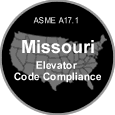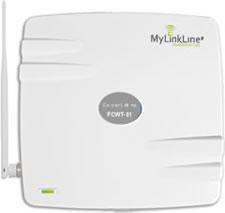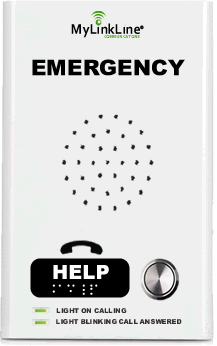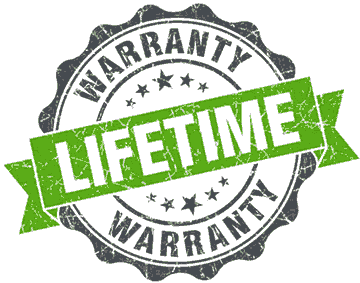
Missouri Elevator Code 2024
Regulations & Standards
Find the latest information on Missouri Elevator Code, laws, and safety standards. Our directories are updated monthly and include website links to help you quickly find the elevator codes and regulations for the state of Missouri (MO)
Missouri elevator codes impose a responsibility on building owners and property managers to adhere to specific requirements within elevators, ensuring the safety of all occupants. Failure to comply with these codes can result in penalties and potential legal action. While the particulars of the Missouri elevator code may differ at the state and local levels, three primary codes govern elevator safety: the American Society of Mechanical Engineers (ASME), the International Building Code (IBC), and the Americans with Disabilities Act (ADA).
ADA
The Americans with Disabilities Act (ADA) mandates unrestricted and equal access to services for individuals with disabilities.
IBC
The International Building Code (IBC) establishes precautions against hazards associated with constructed environments.
ASME
The American Society of Mechanical Engineers (ASME) plays a pivotal role in the development of codes and standards.
The State of Missouri (MO) currently operates under the 2019 ASME A17.1 and CSA B-44 Code
Missouri Elevator Code Authority
Missouri’s elevator safety rules and regulations require that each elevator and related equipment within the scope of the Missouri Elevator Safety Act be registered with the Division of Fire Safety and be inspected annually by a Missouri state-licensed inspector.
As part of the inspection process, each elevator must be tested annually according to the A17.1 code by a person qualified to perform such tests and who is employed or under contract by the owner.
This test shall be witnessed by the state-licensed inspector. The rules are contained in the Missouri Elevator Safety Act, which was enacted in 1994 and placed statutory enforcement responsibility with the Division of Fire Safety, Office of the State Fire Marshal.

Elevator Division Contact Information
Registration
Registration of applicable equipment must be submitted on forms provided by the division. Failure to register with the division may result in a penalty being assessed as prescribed by law. Registration will include but is not limited to, the type of unit, contract load and speed, name of manufacturer, location, and the purpose for which it is used.
Inspections
Any owner, operator, lessee, or its agent is responsible for obtaining an annual safety inspection witnessed by a state-licensed elevator inspector. The inspector must be certified by the Missouri Elevator Code Authority / Elevator Safety Board and possess QEI (Qualified Elevator Inspector) certification or approved equivalency. To become QEI certified, inspectors must pass a written examination administered by an association accredited by a nationally recognized certification entity.
Upon receipt of an approved safety inspection and test data, if applicable, the division will issue a state-operating certificate for the respective equipment. No elevator or related equipment shall operate in Missouri without a state operating certificate. Violation of this section may result in misdemeanor criminal charges.
New Installations & Alterations
The Elevator Safety Act also requires the Missouri Elevator Code Authority / Missouri Division of Fire Safety to issue an installation or alteration permit upon review and approval of plans for new installations or alterations. Please mail all new installation and alteration plans to the Division of Fire Safety, Elevator Safety Unit, P.O. Box 844, Jefferson City, MO 65102.
There are exceptions to the plan review process for units located in municipalities that contract with St. Louis County and for all units located in Kansas City. However, while the city of Kansas City does not require the inspection of dumbwaiters, state law requires an annual safety inspection of this equipment type to be conducted by a state-licensed elevator inspector.
Existing Installations
Within a political subdivision or municipality that had adopted an edition of the A17.1, A17.2, A90.1, or A10.4 codes prior to August 1994, the annual inspection and witnessing of applicable tests shall be performed by local officials according to the code adopted when the equipment was installed. In areas with no elevator equipment code in effect prior to August 1994, the Missouri minimum standard set forth in 11 CSR 40-5.065 will be applied to all existing elevators and applicable equipment installed prior to July 1, 1999. (excerpt from the Missouri Elevator Code Authority state website)
Elevator Cellular Phone Lines
How to eliminate the cost of traditional elevator phone lines and save 35% or more. Our cellular elevator phone lines conform to ASME, ADA, and IBC codes, encompassing all requirements of the Missouri elevator code.

Missouri Elevator Code
Elevator Phone Requirements ASME A17.1
- Two-way communication between elevator and authorized personnel
- On-site communications if over 60 ft of travel
- Communication between the elevator if elevator has remote machine room
- Answer by live authorized personnel – no automated answering
- Communication capability for onsite emergency personnel
- On-site monitoring if staffed 24/7 by authorized personnel
- Location identification on demand to authorized personnel
- Location identification without voice communication
- Hands-free devices only and telephone handsets are not allowed
- Phone automatlly answers when calling into elevator
- Automatic redirect if no answer onsite
- Monitoring the status of local telephone lines and issuing local alerts
Missouri also follows IBC 2019, which includes additional requirements for new elevator installations.
If your elevator travels over 60 feet. A two-way communication system will be installed in the elevator that provides both visible text and audible modes per code requirements. If you’re modernizing the elevator it’s advisable to consult your local Missouri elevator code authority for guidance on the applicable regulations.
- Two-way message display in the elevator cab for hearing and/or speech impaired
A method for authorized personnel to access video footage of passengers from any location within the cabin - A mechanism triggered by emergency personnel to modify the cabin message, signaling that assistance has arrived on-site
Please be advised that we are committed to consistently delivering accurate and current adoption information. We diligently update our records as new Missouri elevator code information becomes available.

Emergency Elevator Phones
MyLinkLine will only install elevator telephones that meet code requirements. We also comply with ADA, ASME, ANSI and IBC codes in addition to all State and Local requirements if applicable. Volume pricing available.

Elevator Phone Monitoring Service
Our dispatch center has been delivering professional service for over twenty years. Our staff has extensive technical and interpersonal training to assist in emergency and non-emergency situations.

Lifetime Product Warranty
If any part of your elevator telephone(s) or elevator cellular landline fails at any time during your lifetime due to a defect in material or workmanship, we will repair or, at our option, replace the defective device at our cost***
